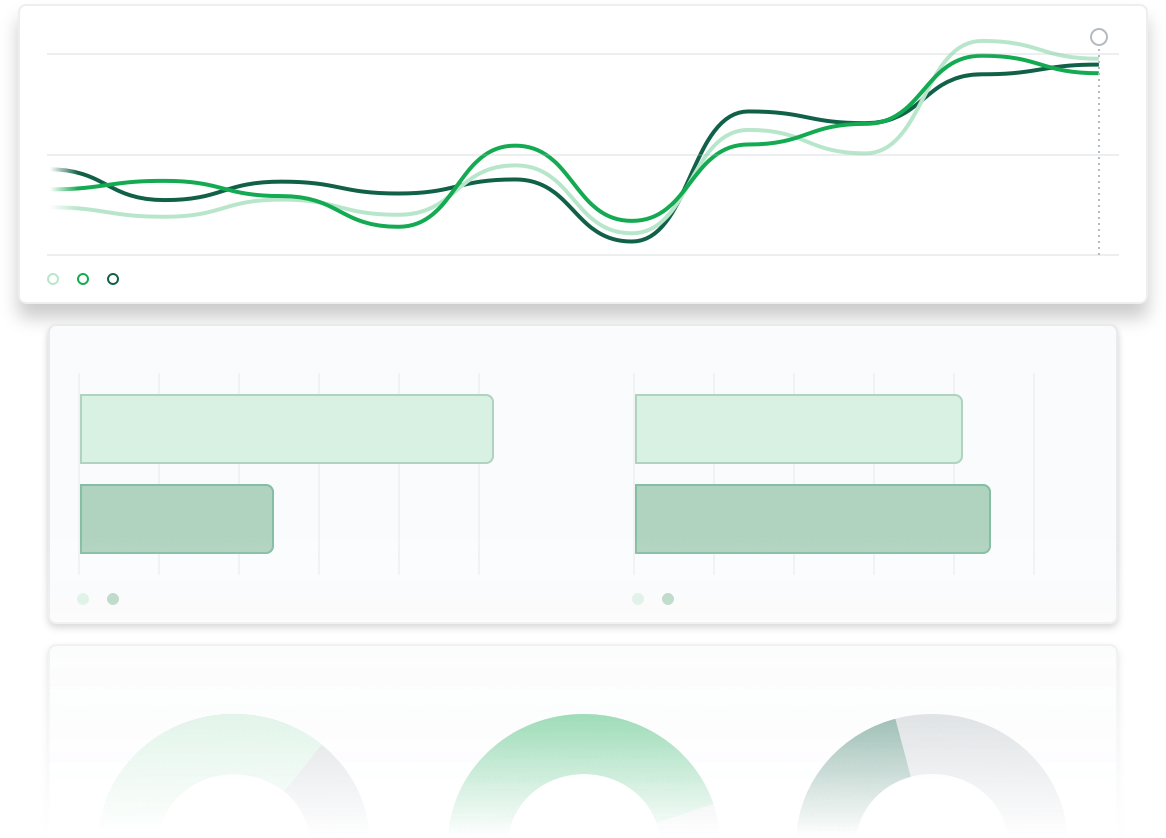MongoDB Day for Bank of America in Pennington
Monday, June 3, 2024 8:30 AM - 5:00 PM
Join us for a tailored in-person event for Bank of America developers and product owners to learn NoSQL data modeling best practices, and find out more about the art of the possible with MongoDB through tailored technical deep dives.
LOCATION
1550 American Blvd
Pennington, NJ 08534
AGENDA
8:30am - 9:00am | Check-in & Breakfast
9:00am - 9:30am | Introduction from Bank of America & MongoDB Leadership
9:30am -10:30am | MongoDB, Documents and Schema design - why and how
10:30am - 10:45am | Coffee Break
10:45am - 11:15am | MongoDB Developer Fundamentals (Exercise)
11:15am - 11:45am | Beyond the Basics Discussion & Exercise
11:45am - 12:15pm | MongoDB 201 (Exercise)
12:15pm - 1:00pm | Lunch
1:00pm - 1:50pm | Indexing, Locking and Transactions Discussion
1:50pm - 2:20pm | Indexing, Locking and Transactions Exercise
2:20pm - 2:30pm | Coffee Break
2:30pm - 3:00pm | Analyzing and Summarizing data inside MongoDB
3:00pm - 3:30pm | Building a reporting service (Exercise)
3:30pm - 4:15pm| Relational Migrator Overview & Demo
OPTIONAL
4:30pm - 5:30pm | Design Reviews
Monday, June 3, 2024 8:30 AM - 5:00 PM
Join us for a tailored in-person event for Bank of America developers and product owners to learn NoSQL data modeling best practices, and find out more about the art of the possible with MongoDB through tailored technical deep dives.
LOCATION
1550 American Blvd
Pennington, NJ 08534
AGENDA
8:30am - 9:00am | Check-in & Breakfast
9:00am - 9:30am | Introduction from Bank of America & MongoDB Leadership
9:30am -10:30am | MongoDB, Documents and Schema design - why and how
10:30am - 10:45am | Coffee Break
10:45am - 11:15am | MongoDB Developer Fundamentals (Exercise)
11:15am - 11:45am | Beyond the Basics Discussion & Exercise
11:45am - 12:15pm | MongoDB 201 (Exercise)
12:15pm - 1:00pm | Lunch
1:00pm - 1:50pm | Indexing, Locking and Transactions Discussion
1:50pm - 2:20pm | Indexing, Locking and Transactions Exercise
2:20pm - 2:30pm | Coffee Break
2:30pm - 3:00pm | Analyzing and Summarizing data inside MongoDB
3:00pm - 3:30pm | Building a reporting service (Exercise)
3:30pm - 4:15pm| Relational Migrator Overview & Demo
OPTIONAL
4:30pm - 5:30pm | Design Reviews

Session Descriptions
MongoDB, Documents and Schema design - why and how
MongoDB Developer Fundamentals (Exercise)
During this time, you will build a small REST web service in MongoDB's in-browser development environment to add, retrieve and update data. See how MongoDB flexible schema and queries work in practice. You need only a laptop with internet access - or a tablet or phone but it's difficult to write code on a phone keyboard.
You need a laptop for this session with internet access. A tablet or phone is okay but it will be difficult to write code on the keyboard.
MongoDB 201: Beyond the Basics Discussion & Exercise
Many people stop training after learning MongoDB 101 and miss out on some critical features that all developers should know. In this session learn about Expressions and how they help with queries, updates and event powerful document validation. Learn some of the most useful expressions and why they can dramatically improve your application performance.
After the presentation, you will get hands on with:
- Expressive Queries, Projections and Updates
- Document validation
You need a laptop for this session with internet access. A tablet or phone is okay but it will be difficult to write code on the keyboard.
Analyzing and Summarizing data inside MongoDB Discussion & Exercise
Often you don't need a service to return all the data, you just need to use the data to compute something and return the result of the computation. MongoDB's aggregation framework lets you do these calculations and aggregations in the database, close to the data quickly and with minimal network overhead. learn the key features of aggregation.
Compete against your coworkers to build services that perform reporting tasks for the business and see who can get those answer for management (and the services to generate them) built the quickest.
You need a laptop for this session with internet access. A tablet or phone is okay but it will be difficult to write code on the keyboard.
Relational Migrator Overview & Demo
Indexes, Locking and Transactions Discussion
When moving beyond the basics of interacting with data in MongoDB, there are three other things you need to consider when building a production ready system; indexes, locking and transactions. In this session we discuss the types of indexes available in MongoDB and why they are essential in every system you build, how locking is implemented to support high concurrency systems, and how multi-document ACID transactions are supported in MongoDB, possibly dispelling some myths along the way.
Indexes, Locking and Transactions Exercise
OPTIONAL 50min Individual Team Schema Design Review Sessions
Register for a 50 minute whiteboard session with a MongoDB expert where individual Bank of America development team can explore how their own workloads might be supported by a NoSQL backend. You will dive deep into your project and design a data model in real time. Teams can expect to leave these sessions with a documented data model and enough knowledge to iterate and optimize the design on their own.
Instructions: Please book your session when you register for the event.
You can learn more about Schema Design Reviews here.